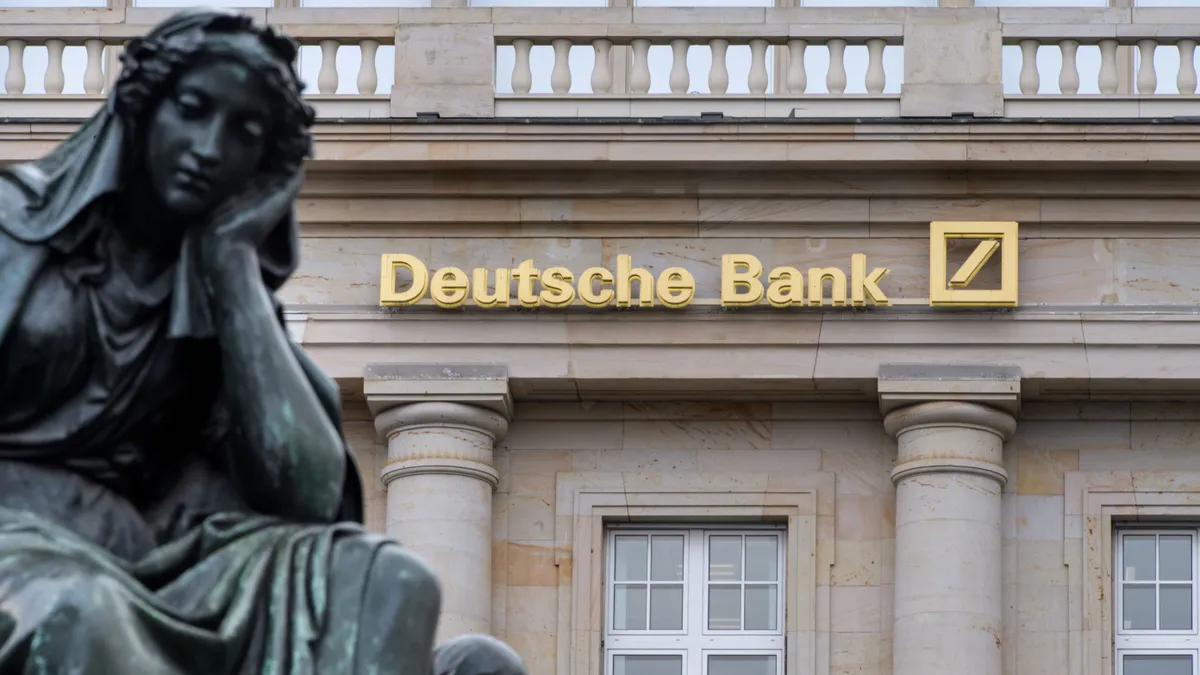The Dutch government plans to sell roughly a quarter of its stake in ABN Amro, according to a statement Tuesday from NLFI, the nation’s investment vehicle. The government now owns 40.5% of the bank but is looking to reduce that share to roughly 30%, NLFI said.
The sale will come as part of a “pre-arranged trading plan” to be executed “in the coming days,” NLFI said.
Barclays “will have full discretion, subject to certain pre-set parameters,” to conduct a “measured and orderly sell down,” the investment vehicle said.
European governments this year have sold off roughly €13 billion in shares of banks they bailed out during the 2007-08 financial crisis, according to Bloomberg. That’s a faster clip than any year since the crisis.
But the last major share sale – when the German government sold a 4.5% stake in Commerzbank in September – ignited a debate about cross-border bank acquisitions on the continent.
Italy’s UniCredit outbid the field to double its stake in Commerzbank to 9%, then used derivatives contracts to push its claim to 21% of the bank, fueling questions as to whether it planned to acquire Commerzbank in full.
UniCredit CEO Andrea Orcel suggested acquiring Commerzbank was one option but, in public dismissed the buy-up as “an investment.” Commerzbank quickly named a new CEO, launched a slate of ambitious growth targets, and executives of the two banks met for discussions, but no major announcements followed.
The roughly 10.5% chunk of ABN Amro the Dutch government is selling is worth roughly €1.4 billion, Bloomberg reported.
European governments are selling at a relatively high time. Robust interest rates over the past two years have driven banks to record profits – and higher valuations.
But it is “not realistic” to wait to sell until ABN Amro’s share price is high enough that the Dutch government breaks even, Sigrid Kaag, the nation’s former finance minister, said in a letter to parliament last year, according to Bloomberg.
With that said, the Netherlands has raised more than €10.9 billion from sales of ABN Amro stock dating back to 2015, according to NLFI filings – and the government has received nearly €6.3 billion in dividends on its investment.
The Dutch government’s stake in ABN Amro now accounts for about €5.3 billion of the bank’s €13.2 billion market value.
When the government’s stake falls below one-third, it will give up its right to be informed of the bank’s investment or divestment decisions worth €50 million or more.
The Dutch aren’t the only ones looking to loosen the reins. Italy aims to sell up to 15% of Monte dei Paschi di Siena – more than half of its stake – in a share placement, Reuters reported Friday, citing two unnamed sources.
The move would leave the government holding as little as 12% in the world’s oldest bank after taking it over in 2017.
The U.K. and Greece, too, have sold sizable holdings in bailed-out banks thus far this year. The former shrunk its stake in NatWest to 22% in May. The Greek government this month concluded its sale of a 10% stake in National Bank of Greece.
“The safety net of the state has been pulled back, but it happened at a time when the banks were already showing very strong signs of recovery,” Ilias Xirouhakis, who runs HFSF, the Greek agency HFSF in charge of the country’s bank stakes, told Bloomberg. “We’re now looking at very competitive banks at a pan-European level … It was the right time for us to leave.”
By contrast, “the German government held on to its stake in Commerzbank for too long,” Monika Schnitzer, an economics professor and chair of the German Council of Economic Experts, told Bloomberg.
All in all, the government stake sales “may lead to the consolidation we need in Europe,” Hans Degryse, a professor of finance at KU Leuven, told the wire service.
Observers of the ABN Amro divestment may be watching for a maneuver similar to the one UniCredit pulled on Commerzbank.
The Italian lender last year bought a roughly 9% stake in Greece’s Alpha Bank in a deal that allowed UniCredit to establish a presence in Romania through Alpha’s unit there.
ABN Amro has been the target of some market speculation in recent years. A Dutch newspaper reported that France’s BNP Paribas approached the Dutch government about the bank in 2022. The French bank denied the reports at the time.

















